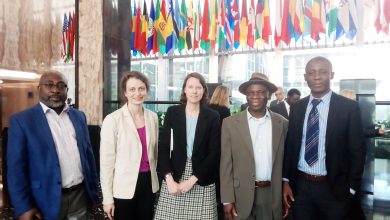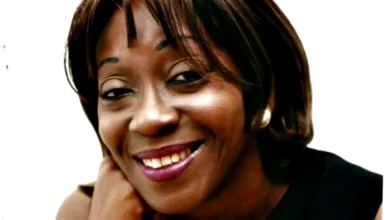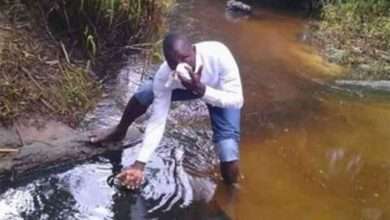The Ogoni Four Lives Matter! By Dornu Kogbara
Ken Saro Wiwa, the erudite, magnetic Ogoni writer and environmental campaigner who was executed by the Nigerian authorities exactly 26 years ago, on 10 November 1995, continues to be a divisive figure on his home turf.
The government of the day, headed by General Sani Abacha, a military dictator, sent him to the gallows for urging his followers to assassinate (on 21 May 1994) four Ogoni VIPs who did not share Saro Wiwa’s penchant for fiery radicalism.
They were:
- Chief Albert Badey and Chief Edward Kobani (my uncles)
- Chief Theophilus Orage and Chief Sam Orage (the Orages were friends of my parents and Chief Sam happened to be Saro-Wiwa’s brother in law)
My father, Ignatius Kogbara, was nearly killed on that fateful day, but escaped from the assassin who pursued him on a motorbike.
Now known as “The Ogoni Four”, their bodies have never been recovered. The burial ceremonies organised by their devastated families were purely symbolic because the coffins were empty.
The Ogoni Four’s kith and kin have always been absolutely convinced that the massacre was stage-managed “by Saro Wiwa’s thugs” and could not have taken place without the explicit approval of Saro Wiwa – a gifted demagogue who had publicly (verbally as well as in leaflets that were widely distributed) denounced his moderate political opponents as ethnic traitors, evil government collaborators and “vultures.”
In the quarter century that has elapsed since Saro Wiwa and eight of his supporters were tried by a military tribunal and sentenced to death for incitement and actual murder, Saro Wiwa has become a quasi-canonised global icon.
Fawning accolades abound in academic fora and traditional and social media outlets in Nigeria and beyond.
Respected indigenous and international personages and bodies – the Pan Niger Delta Forum, United Nations and Amnesty International, for example – repeatedly hail him as a champion of the oppressed and victim of an abominable judicial homicide.
Now, his fans are demanding that President Muhammadu Buhari “totally exonerates” their hero (they initially requested a pardon, but no longer regard a pardon as acceptable because the word implies guilt for which official forgiveness is required; and as far as they are concerned, Saro Wiwa is 100% innocent).
On the anniversary of Saro Wiwa’s demise yesterday, both here and abroad, there were several pro-Ken seminars, newspaper articles, TV/radio programmes, Facebook posts, etc …
… while chanting activists wearing T-shirts emblazoned with his image marched through Port Harcourt, the capitals of the state in which Ogoni is situated, the Niger Delta and the oil industry.
In the midst of this efficient and persuasive cacophony, little if any mention was made of the tragically slaughtered Ogoni Four.
‘Twas always thus.
These slayings have been largely ignored since this terrible drama commenced in the mid 1990s.
Interestingly, MANY Nigerians in general and Ogonis in particular have approached me over the years to say that they don’t buy the hype and think that Saro Wiwa and/or his acolytes were personally responsible for the Ogoni Four’s deaths.
But the views of those who don’t see Saro Wiwa as a saint with clean hands are rarely reflected in the court of public opinion, so the Ogoni Four are constantly overlooked (or only referred to as irrelevant afterthoughts) as if their lives didn’t matter.
The reasons for this unjustly skewed narrative are numerous.
First, I knew Ken well and was genuinely fond of him (he bought me my first writing desk!); and I can confirm that he was a clever, charismatic, larger-than-life, pipe-smoking, twinkly eyed, amusing, eloquent intellectual who wrote great newspaper articles, books and popular Nigerian TV sitcoms.
So who can blame his colleagues in liberal arts establishments all over the world for automatically assuming that he was incapable of the nastiness of which he was accused?
Second, it was common knowledge that the sinister, paranoid, unsmiling Abacha was so capable of nastiness that it would not be entirely unfair to describe him as nastiness personified.
So who can blame anyone who automatically assumed that anyone Abacha targeted was probably blameless?
Third, military tribunals often lack moral and legal credibility. Who can blame onlookers who possess democratic mindsets that have led them to regard the guilty verdict as highly suspect and dismiss the evidence provided by prosecution witnesses?
Fourth, most Saro Wiwa apologists are far more voluble, media-savvy and well-connected than most Saro Wiwa critics.
Finally, the speed with which Saro Wiwa was despatched from this mortal sphere was outrageous, to put it mildly.
I blamed Saro Wiwa for creating a toxic atmosphere that made the mob violence that felled the Ogoni Four possible. And I’m still angry about the fact that his aggression caused deaths and destroyed a network of previously cordial family relationships.
But I knew Saro Wiwa’s good side.
Everyone agrees that he didn’t personally kill anyone; and I don’t believe in capital punishment and was appalled by Abacha’s failure to give him a right of appeal and extremely sad when he was executed a mere week after he was sentenced.
Some of those who lynched the Ogoni Four are still alive and at large. I will not oppose a pardon for Saro Wiwa if the lynchers can please tell us where the remains of Kobani, Badey and the Orages were concealed. An anonymous note will do, thanks.




